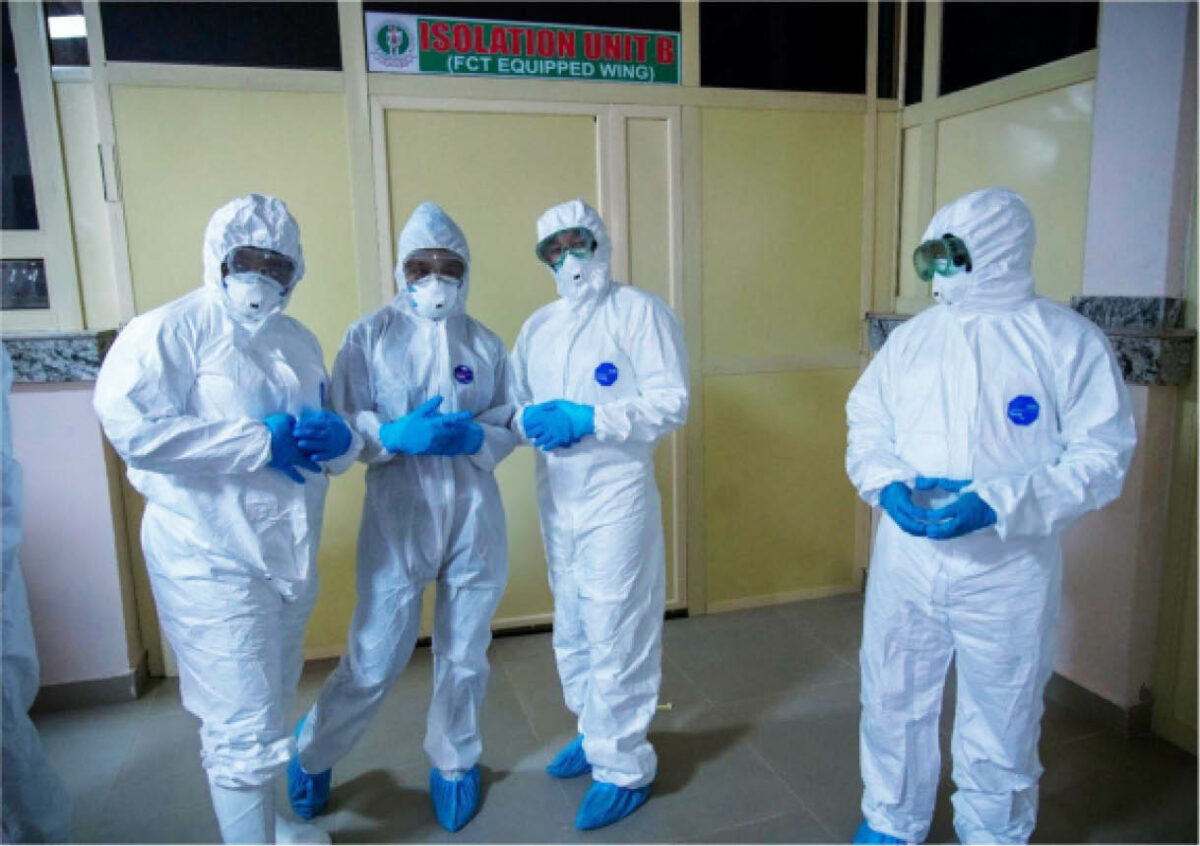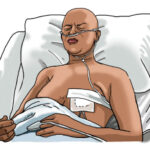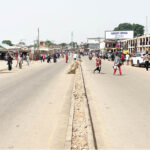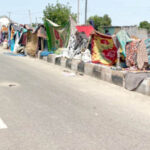From Covid-19 deniers, to medical practitioners, Daily Trust Saturday spoke to a wide array of survivors who shared personal stories detailing their fight with the virus, and their road to survival.
As the COVID-19 pandemic rages in the country, some people have lost their lives to the disease, while others survived. Musa Ebomhiana, Chief Press Secretary of the Edo State Deputy Governor Philip Shaibu, describes himself as a living testimony, and an ‘ambassador of COVID-19’, having survived the virus aged 59.
Here’s how severe COVID-19 gets you: By paralysing the immune system
How crowd flouted COVID-19 protocol at Osogbo festival
He said he was taken to the Stella Obasanjo Isolation Centre in the state very sick, but came out healthy and strong. “I was initially treating malaria, high fever and typhoid, until COVID-19 test was done, and I tested positive.”
Ebomhiana said while the state government made the isolation centre very conducive, the illness and thoughts of death do not make an isolation centre a place anyone would wish to be. However, he said he didn’t view it as a death sentence because of his experience in the course of his work. “I have also read a lot of literature, and listened to programmes about the illness, so I knew that once it was detected early, one could pull through.” According to him, the mindset of patients play a key role in recovery from COVID-19.
“God was so merciful to me, because people above 50 years hardly survive it. But I am 59, and to the glory of God, I survived it,” Ebomhiana told Daily Trust Saturday.
Ebomhiana said on the first day, he was given as much as 28 tablets, as patients take COVID-19 drugs morning, afternoon and night. He said patients receive treatment consecutively for five days, and another three days for observation pending when their test results come out. On possible stigmatization, he said though he had not faced any since he recovered, some people however asked him why he appeared on the Nigeria Television Authority (NTA) programme as a COVID-19 survivor. “I told them I survived, and I’m not ashamed of it. I appeared on TV to tell the whole world how God was merciful to me, and to tell people that COVID-19 is real and not a scam. I did not get the disease through carelessness, as anyone can contract it. I have sanitizer in my car, house and office. When people come to my office and leave, I sanitize my hands, chairs and office, yet I still got it. So why should I be afraid of stigmatization?”
Ambassador Kabiru Rabi’u Dansitta was the alleged index case of COVID-19 in Kano State. He described his experience at the state isolation centre as ‘horrible’, not because he was ill, but as a result of the psychological trauma from being maligned by members of the public. He said: “I never felt sick for one day during the 29 days I spent at the isolation centre , and you can confirm that from the doctors there. My only fear was that I had a heart operation during my September 2019 American trip. I was afraid of having another crisis while at the isolation centre. The experience was so traumatizing, not because of lack of doctors at the facility or food, but because of the castigation I was subjected to and the attitude of the public towards me.”
Dansitta told Daily Trust Saturday that comments on social media were also hurtful. “I was all alone at the isolation centre for four days, before the second case was brought in. It was indeed traumatizing, but all praises be to God for seeing me through,” he said.
Malam Nasiru Ibrahim, a Kano-based journalist, was diagnosed during Ramadan, having come in contact with a COVID-19 patient who died of complications a week later. He started suffering from catarrh, accompanied with loss of sense of smell, until his niece who was a member of the state response team on COVID-19 mobilized her team to conduct tests on him and his family.
Ibrahim said his niece’s attention was drawn to the photo he took with the COVID-19 patient and shared on his family WhatsApp group. “When the result came out, the response team called me on the phone and told me that my result was positive. After some hours, they came to my house for an interactive session. They gave me a thermometer to check my body temperature, and that of my family members, and also send them reports on a daily basis. They advised us to stay at home,” he added.
Ibrahim told Daily Trust Saturday that he didn’t experience any form of stigma, even as he commended his neighbours, colleagues and friends for standing by him throughout the period of his isolation of almost three weeks.
When Muhammad Buba returned to Gombe after a business trip to Lagos at the onset of the outbreak, he didn’t realize that he had contracted the virus. Seven days after, following contact tracing by the Rapid Response Team of the Special Taskforce on COVID-19 in Gombe, he was evacuated to a designated isolation centre, where he tested positive. He spent two weeks there, alongside 53 others and was discharged after two tests conducted on him returned negative.
“Throughout my stay at the centre, I never felt sick, and up to the time I was discharged, I was not administered any drug,” Buba told Daily Trust Saturday. He also said he and others were extremely bored, quarantined without any form of medication or counseling despite being said to have contracted COVID-19. So, he said, he and other patients then decided to stage a peaceful protest.
According to Buba, few days after the protest, the COVID-19 taskforce in the state issued certificates certifying them free from COVID-19, and subsequently discharged them.
Another survivor, Damilare Ojo, told Daily Trust Saturday that he initially had reservations about the virus during the first weeks of the outbreak. But when the federal government announced an initial two-week total lockdown, he became more cautious. “As the lockdown was increased, I began to doubt the numbers being released by the NCDC as I personally did not know anyone that had the virus or encountered a confirmed case in Nigeria. This was a huge mistake. From this period, I gradually eased the movement restrictions I placed on myself and began to visit some friends within my neighbourhood whom I felt had been home during the lockdown. I continued to go to the market on market days and adhered to the requirement of wearing mask and washing hands with soap and water regularly. On May 9, I began to feel my temperature rise, and I felt feverish. In the morning, I went to Garki Hospital, in Abuja to do a malaria test. The results came out negative, but I was advised to take anti-malaria medication.”
Upon completing his meds, Ojo felt better. But he was still worried about the fact that he had no malaria, but was very ill. “My fears heightened when I lost my sense of smell and could not taste the delicious jollof rice a friend made for me. So that Sunday evening, I resolved to contact the FCT Collection Centre having surfed the internet, and I was directed to call back by 9am on Monday. I did, and a form was sent to me via SMS, asking me for information including age, symptoms, whether I had met a confirmed case, etc., all of which I answered. I was directed to come for a COVID-19 test, which I did.”
Ojo said on Sunday, 17th May, he received a call from the Public Heath team of the FCT, that his test result was positive . He was picked up the following day by the NCDC team to the University of Abuja Isolation Centre, in Gwagwalada. “Despite being anxious, I was comforted by the uplifting response that I received from my family and friends, and decided to remain positive during the process. On getting to the centre, I was received by the doctors who collected my blood sample and conducted a briefing. After that, I was ushered to my space which happened to be a private ward that had an air conditioner, reading table, chair, various drugs, bottled water, etc. I was informed that every morning doctors come for various check-ups including checking my blood temperature, oxygen levels and temperature and that meals will be provided in the morning, afternoon and night which will be for free at the expense of the government.”
While at the centre, Ojo remained positive. “I was listening to music, and working as I had my laptop and internet with me,” he said. Then on Monday 25th May, the doctors informed him that his test result was negative. “The news of my result was indeed an emotional one as I had barely spent seven days at the centre, and immediately I burst into tears thanking God for sparing me, and healing me in such a short time. On getting back home, I was received by my neighbours and friends to my surprise as I had thought I would have been stigmatized having been a COVID-19 patient. I also realised that the Public Team of the FCT administration had gone to my house to disinfect it.”

Ojo said health workers at the isolation centre took proper care of patients and that the nature of feeding at the centre was commendable. However, he said government needs to improve on the mode of communicating test results. “The fact that the test results are communicated only via telephone call is insufficient.” He added other areas for improvement to include provision of transportation when discharged, and briefing of recovered patients when discharged.
Ojo said as a result of his experience, he has decided to engage in a nationwide advocacy to enlighten people at all levels – especially those in rural areas – about COVID-19.
Chairman of the Nigerian Medical Association’s Nasarawa State Chapter, Dr. Bulus Umaru Peter, and Commissioner for Justice, Dr. Abdulkarim Kana, are among COVID-19 survivors in Nasarawa State.
Dr. Peter said the possibilities on how he contracted the virus are numerous. Firstly as a medical personnel, he sees and attends to patients, while adhering strictly to universal standard precautions when carrying out clinical duties. He said as a leader of one of the professional health associations, he also had series of meetings with government officials, who may themselves have been exposed, while attending to people they represent. He told Daily Trust Saturday that he was not apprehensive when he tested positive, as his family began to pray for him, having tested negative themselves.
Aside medicines to boost his immunity, Dr. Peter said he was placed on antibiotics, analgesics, and antivirals in addition to fluid intake, and adequate nutrition while at home before the result came out and later at the Isolation Centre in Dalhatu Araf Specialist Hospital in Lafia.
Similarly, Dr. Kana also recovered. He told Daily Trust Saturday that it began towards the end of a very stressful week. “I became slightly sick, and fatigued, and at the same time with catarrh and a sore throat. Since I was not sure what it was, doctors prescribed the standard malaria drugs for me, and vitamin C tablets. But on Friday, July 3rd, I started feeling better but in order to be more careful, conscious of my type of work involving meeting with hundreds of people every day, I decided to invite the state COVID-19 test team that took my samples on the 4th of July, 2020. As at Monday the 6th of July, 2020 I was already feeling a lot better, but the result of the test I took days earlier returned positive, so I was moved into isolation. I was later discharged from isolation, and directed to self-isolate at home for one week. Now all the signs of illness are gone, and I am strong and in high spirits.”
Lucy Osuizigbo-Okechukwu’s ordeal with COVID-19 began mid-May when her husband took ill. They went to a Lagos private hospital and he was diagnosed of malaria and given drugs. He however, didn’t feel better after taking them for five days. “Then on May 27, I also had fever and a pounding headache and two days after, I could not get out of bed. I was feeling extremely tired, had a sore throat and high temperature. I went to the hospital and tested positive to malaria. I was given drugs. But after two days, I lost my sense of taste and smell and I immediately linked it to the symptoms of COVID-19. I became worried, as my husband also complained of the same symptoms.”
Osuizigbo-Okechukwu said she called LUTH’s virologist and thereafter called her doctor. Both of them advised them to go for a COVID-19 test. “On June 4, we went for a test through the emergency center that we called. Samples were collected, and we were asked to self-isolate until the results come out. My husband was called early in the morning on June 7 that our results came out positive. We were told we should pack our bags and in another two hours we would be picked.
“I became frustrated, depressed, angry, confused. We packed a few things and could not even call any family member or friend because at that point, we don’t know what we were dealing with. To avoid neighbors raising eyebrows, we told them not to come pick us up at home, so we were picked somewhere along the road. They picked up two other people and we all went to the isolation center. There, we were given about seven different drugs including zinc, vitamin C, chloroquine and others. The place was okay and we were being fed three times a day based on the food we wanted to eat. We had fruits and vegetables too. The doctors said the drugs are not a cure, but to boost our immune system so we can fight the infection. We were 12 in a ward, and we interacted, prayed, and shared experiences every day. There was constant power and water supply and the environment was clean. On the fifth day, our results came out negative,” she told Daily Trust Saturday. She and her husband were discharged on June 15 with four other persons after giving the medical team the list of people they had contact with.
“We were categorized as asymptomatic. The headache, fatigue, sore throat were all gone, I can taste perfectly now, but smell is still 60 percent. They advised us to take more vitamin C, zinc, fruits and vegetables to boost our immunity so as to avoid being re-infected. Many never believed we were at the isolation center when we returned home. Someone at the center lost his cousin who tested positive. He had diabetes, and by the time he was eventually at the hospital, he had shortness of breath and it was already severe. He later died.”
Osuizigbo-Okechukwu fretted that Nigerians don’t have a culture of checking health status. “Many don’t even know if we have underlying health issues. I was one of those who said Covid-19 isn’t real, until it happened to me. We should all take safety precautions seriously,” she added.

 Join Daily Trust WhatsApp Community For Quick Access To News and Happenings Around You.
Join Daily Trust WhatsApp Community For Quick Access To News and Happenings Around You.


